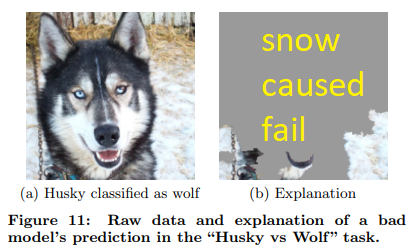Shedding a small beam of light into my Neural Network Black Box.
Hopefully in the near future Machine Learning Libraries will provide more interpretability tools and Machine Learning Developers will incorporate more interpretability within their model designs.I saw this article and I was intrigued, but would have difficulties building something that advanced.

So I built something more at my level.

From this very quick test, it looks like to me, that libraries could include a few methods:
- Various abilities to parse the input data: interpret.input.parse() I have done a very simple random parse injecting transparent pixels into the data. I am sure other people could come up with more complex ways to parse the input data. Perhaps use mobilenet to exclude non-identified objects or take turns removing obects, etc.
- The predict feature (which is already available): model.predict()
- A method to store, sort and show the interpretations: interpret.add(), interpret.sort(), interpret.show()
This demo is loosely based on: LIME, but I have built it into the model
This is a minimalist setup of a grey shade detector but using only black and white pixels.
Using a 4x4 input array of pixels with 0=transparent, 1=black, 2=white;Note: this makes a very small screen pattern. I have presented it repeated 256 times to make a much larger image.
Output is a 1x3 one hot array in this order: grey scale, blocks or lines, diagonal lines
Note: For interpretability I will not train the NN on the transparent feature "0"
To run an interpretability test, I will run the prediction multiple times with inserted transparent blocks, then show and sort the test results.
This model is not perfectly trained, it is for my students to try to perfect the model. Perhaps the interpretatbility will give hints about areas to improve. The rest of my examples are at https://www.rocksetta.com/tensorflowjs/